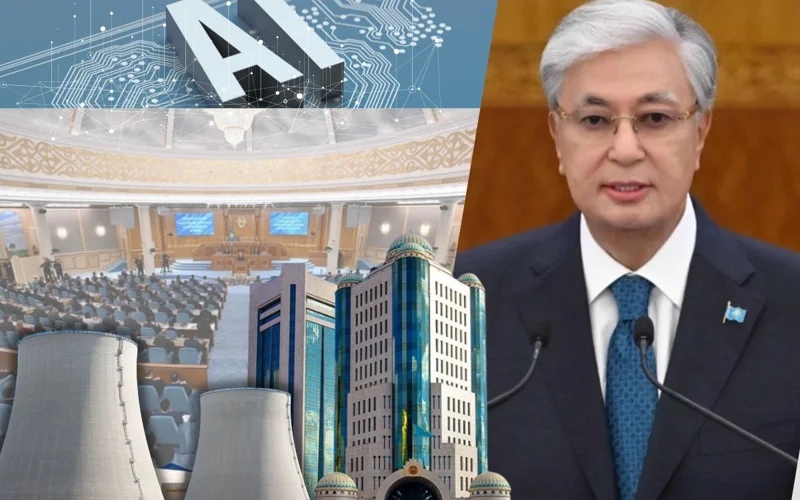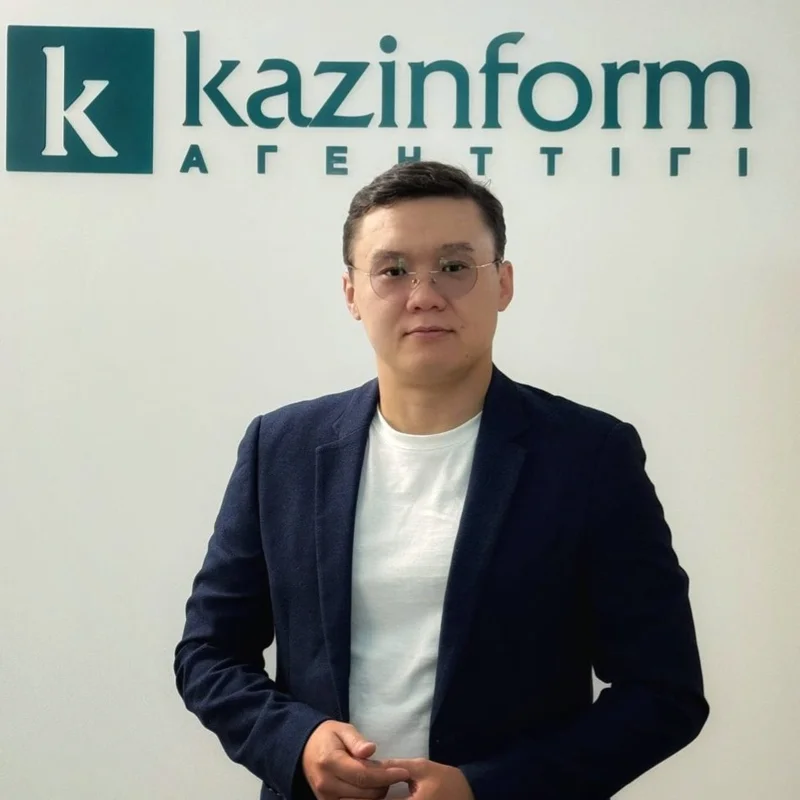Foreign media on Kazakhstan: Kazakhstan to change its parliamentary system; Kazakhstan’s president proposes creating a Ministry of Artificial Intelligence
In its latest overview of the world’s media, numerous outlets reported on initiatives proposed by President Tokayev in his annual Address to the People of Kazakhstan. In light of this, Kazinform News Agency presents a summary of how these developments were covered in the foreign press.

Euronews: Kazakhstan to change its parliamentary system
Kazakhstan President Kassym-Jomart Tokayev has proposed eliminating the Senate and moving to a unicameral parliament, with a nationwide referendum planned for 2027, Euronews reports.
“This reform of the highest representative authority will be a logical continuation of all previous reforms, including the reform of presidential power,” he said in his annual state-of-the-nation address.
Tokayev suggested that discussions on the shift will take a year, after which citizens will vote on the changes.
“I have said more than once that all issues of crucial importance to the state will be resolved only with the consent of the people,” he stressed. He also proposed electing the new parliament solely through party lists.
Currently, Kazakhstan’s legislature has two chambers—the Mazhilis and the Senate. The change would not only simplify lawmaking and reduce costs, but also alter succession rules, as the Senate speaker is now first in line after the president.
Beyond political reform, the president announced wide-ranging initiatives, including a Ministry of Artificial Intelligence and Digital Development, a shift in investment focus from raw materials to manufacturing, and new financial reforms such as a State Fund of Digital Assets. He highlighted the recovery of 850 billion tenge (€1.4 billion) for reinvestment in social infrastructure and called for measures to curb inflation.
Tokayev also outlined plans to modernize agriculture, strengthen Kazakhstan’s role as a transit hub, and grant special status to the new digital city of Alatau. On energy, he urged accelerating the construction of the second and third nuclear power plants to ensure long-term sustainability.
Eurasianet: Kazakhstan’s president proposes creating a Ministry of Artificial Intelligence
According to Eurasianet, bracing for a “brave new world” means all Kazakh citizens must embrace digitalization and artificial intelligence, President Kassym-Jomart Tokayev said in his September 8 state-of-the-nation address.
“Completely new types of threats to human security have emerged, including those related to the use of extremely dangerous weapons based on artificial intelligence,” he warned. “There are other factors that indicate a fundamental change in the geopolitical paradigm. In other words, a new world order is coming.”
Machines will play a greater role in society, Tokayev acknowledged, and citizens must adapt or risk irrelevance.
“Based on large-scale digitalization and active implementation of artificial intelligence technology, we must modernize the economy,” he said. “To become part of the new technological order, it will be necessary to restructure the entire system of public administration with a quantum increase in its transparency, efficiency, and human-centeredness.”
Tokayev announced the creation of a Ministry of Artificial Intelligence and Digital Development to guide reforms. Priorities include a “full-fledged” digital ecosystem, a strategic cryptocurrency reserve, and scaling up the digital tenge in national and local budgets.
He also cautioned that fiscal challenges remain. “There is no ready-made recipe for solving this problem, most countries face it, it is essentially universal, but in our conditions it has become especially acute,” Tokayev said of inflation. “We need to break out of this macroeconomic vicious circle.”
Cointelegraph: Kazakhstan’s president calls for national crypto reserve, digital asset law by 2026
Kazakhstan will create a strategic cryptocurrency reserve and launch its “CryptoCity” project in Alatau, President Kassym-Jomart Tokayev announced in his annual address, Cointelegraph reports.
He called for building a “full-fledged ecosystem of digital assets as soon as possible” to “find effective ways to maximize the return of bank money to the economy.” Tokayev proposed a law to this effect be drafted by the Agency for Regulation and Development of the Financial Market and adopted before 2026.
“It is advisable to create a State Fund of Digital Assets on the basis of the National Bank’s Investment Corporation,” he said. “This structure will accumulate a strategic crypto reserve consisting of promising assets in the new digital financial system.”
Tokayev also confirmed that Alatau will become Central Asia’s first “CryptoCity,” where digital payments will be integrated into everyday life.
“This city will represent the future of Kazakhstan,” he stated. “It should combine technological progress and the most favorable living conditions.”
Kazakhstan has been a global hub for Bitcoin mining, once accounting for 13% of the world’s hashrate, but rapid growth has also fueled illegal operations and strained the power grid.
The Times of Central Asia: Kazakhstan to launch internationally accredited rare earth laboratory
Kazakhstan will host an internationally accredited laboratory for rare earth metals in Astana, strengthening its role in global supply chains for critical raw materials, The Times of Central Asia reports.
Industry Minister Yersayin Nagaspayev said agreements have been reached with RCI Inspection and PARAGON to open a geo-analytical facility under their certification, including core storage and repositories. Preparatory work is already underway, with the lab expected to open by mid-2026 under the National Geological Service.
The initiative follows President Kassym-Jomart Tokayev’s address stressing the strategic value of rare earths. “Given global trends, rare earth metals and other critical materials are acquiring particular significance. Kazakhstan has all the capabilities to firmly integrate into global production and trade chains,” he said. Tokayev also ordered the launch of at least three high-tech facilities using rare earths within the next three years.
Nagaspayev outlined four processing priorities: battery materials, recycling of permanent magnets, heat-resistant alloys for turbine engines, and semiconductor materials. Planned projects include a 15-ton-per-year gallium plant, production of high-purity manganese sulfate and graphite, nickel-based superalloys, and pilot magnet recycling with European partners.
Enerdata: Kazakhstan plans new nuclear plants and 6.3 GW of renewables by 2030
In his annual state-of-the-nation address, Kazakhstan’s president unveiled new objectives for the country’s energy sector. According to Enerdata, on the nuclear front, Kazakhstan plans to build a second and third nuclear power plant, highlighting a recently signed strategic partnership with China in the nuclear field and expressing openness to collaboration with other international companies.
The government also announced plans to build an additional 6.3 GW of green energy capacity over the next 5 years, significantly boosting the share of renewables in the national energy mix.
At the same time, Kazakhstan aims to leverage its natural advantages—particularly its substantial coal reserves—by investing in “clean coal technologies”, with the goal of ensuring both environmental sustainability and economic efficiency, according to the president.
At the end of 2024, the country had an installed capacity of 1.8 GW of wind and 1.5 GW of solar, accounting for around 11% of the country’s total capacity mix.
You can read last week’s weekly digest here.
